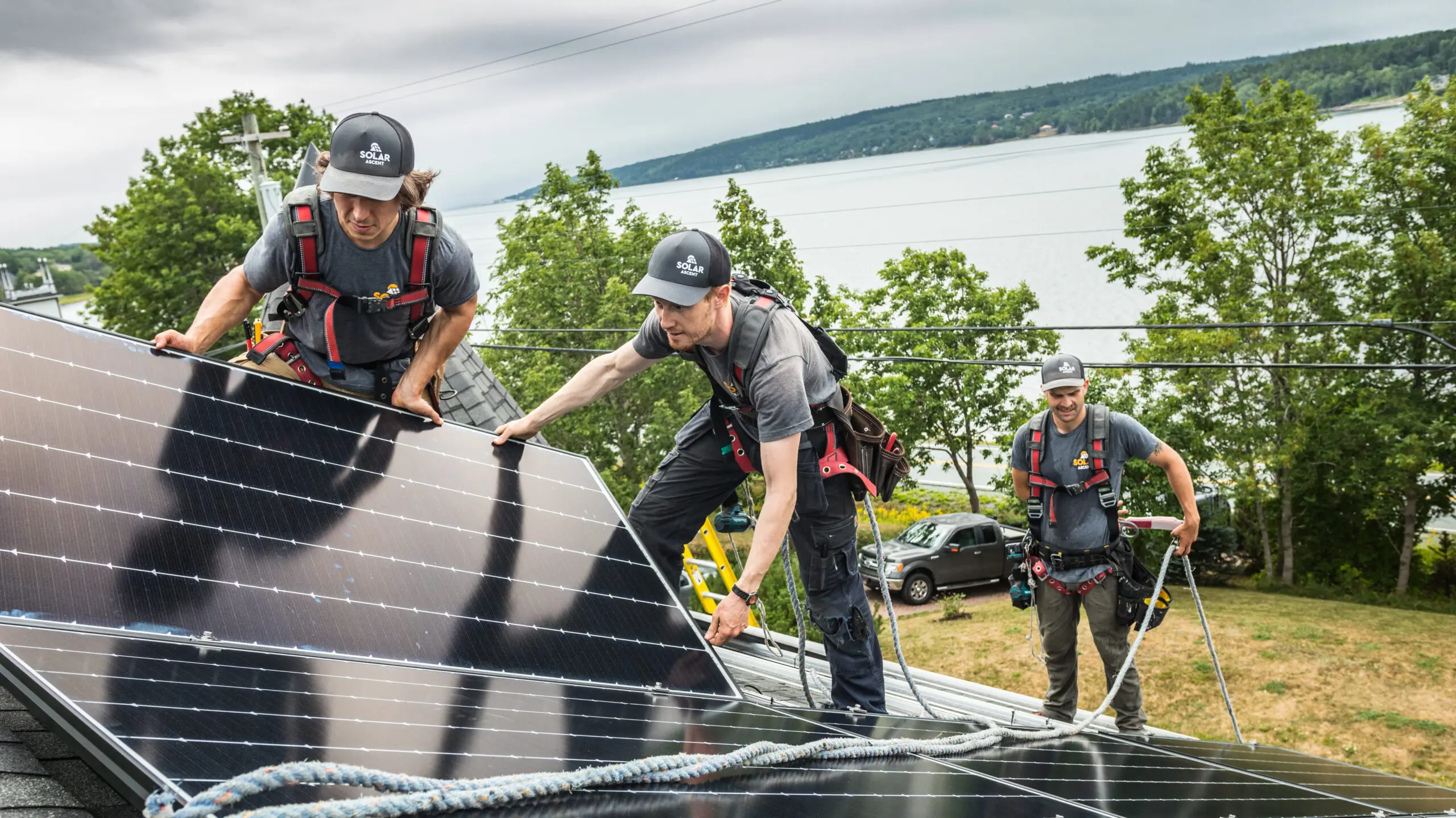
Choosing a contractor to install your solar PV system can be the most difficult decision in the process of going solar. Luckily, CanREA makes the process a bit easier for you with our directory of solar installers, all of whom have signed the CanREA Member Code of Conduct.
Before choosing a solar installer…
1. Quotes: Consider obtaining more than one quote, especially if an installer was not referred by someone you trust, or is not well known to you. Written quotes should cover all of the components and installation and make clear what, if any, costs you will be responsible for on top of the installer’s quote. Here are some key elements you should discuss with your contractor and ensure are included in a quote:
- Costs of stamped engineering drawings
- Costs of obtaining necessary permits
- Maintenance costs and warranty support
- Any available incentives, and assistance with applying for them
- Any additional components or materials not included in the package price
2. Insurance: Contact your insurance provider to check if the installation of a rooftop solar system will have implications for your home insurance.
3. Utilities and incentives: Make sure that the installer you are considering has experience in dealing with local utilities and understands all relevant incentive program rules.
4. Training: Check if the installer has training for the products from the manufacturers that they have specified in your quote.
5. References: If possible, check references by speaking with former customers, as well as researching online reviews. Web reviews and recommendations can be a great way to find the right contractor for you, but keep in mind that there can often be two very different stories for any negative reviews.
6. Certifications: You should also ensure that any subcontractors the installer plans to use have the proper qualifications and the insurance needed to properly complete the work. Remember, work may need to be inspected for electrical or building safety, so it needs to be done right. Ask if their employees or contractors have specialized solar certifications, such as those issued by the North American Board of Certified Energy Practitioners (NABCEP). While NABCEP certification is not required in Canada, it is a very rigorous certification program that demonstrates the installer has been trained and tested on solar PV installations.
Door-to-Door sales
With the rapidly growing interest in residential solar, there has been an increase in door-to-door solar sales in many markets across Canada.
Companies may advertise “free” solar PV systems, which likely means a $0 down payment arrangement with high financing costs. Alternatively, they may be asking for a big up-front deposit in order to lock in a time-limited deal.
Customers should not feel pressured into making a long-term investment in solar and energy storage systems. With so many high-quality, reputable solar installers to choose from, there’s no reason to say “yes” to anyone applying pressure at the door or over the phone. As with any major home improvement project, CanREA strongly recommends getting multiple estimates from different contractors and reviewing our checklist (below) before making any investment decisions.
Checklist: Questions to ask your installer
☑ Have you secured a net-metering agreement with your local or provincial utility and received permission to proceed?
☑ Have you checked provincial electricity rates and understand the rules for banking credits?
☑ Have you checked references and qualifications for the contractor you have chosen?
☑ How long has your contractor been in business? Will they be around if something needs fixing in the future?
☑ Do you have a copy of warranty materials?
☑ Have you checked your roof condition and are you satisfied that it will hold up for the next 20 years?
☑ Are there any structural or electrical conditions you need to address before proceeding with installation?
☑ Have you and your installer assessed and addressed any potential shading issues, now or in the future, that may affect power production?
☑ Have you and/or your contractor calculated average annual power output in kilowatt hours for your system? This will give you a sense of how large your electricity bill savings will be.
☑ Is your system sized appropriately for your average annual consumption level?
☑ Have you factored in any financing costs (including leasing costs) in calculating your system costs and savings?
☑ Who will take care of any necessary building or electrical inspections?
☑ Who will apply for provincial incentives (if available) and what are the rules for accessing these?
☑ Do you need to inform your insurance company about this new addition to your home?

